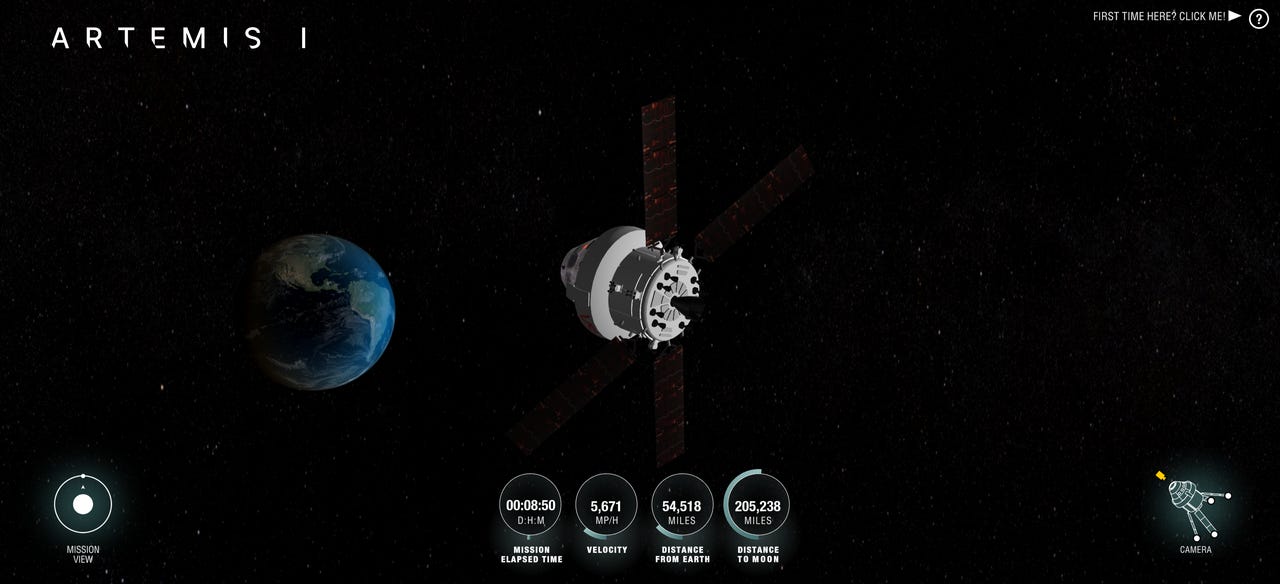































 Image: Screenshot by Sabrina Ortiz/
Image: Screenshot by Sabrina Ortiz/ After several failed attempts, NASA has finally launched the first phase of the Artemis mission.
In this phase, the unmanned Orion spacecraft will take a trip around the moon and back-and you can track its journey in real time.
By using the Artemis Real-time Orbit Website (AROW), anyone with internet access can see where Orion is in space.
The real-time tracker will also show trip information such as mission elapsed time, velocity and spacecraft distance from the Earth and moon.
Also: What is Artemis? Everything you need to know about NASA's new moon mission
"This is a really powerful way to engage with the mission and understand the scope of what NASA is trying to accomplish with Artemis I," said Seth Lambert, the Orion programmer who created AROW.
You can access AROW at any time by simply visiting the website or by following Orion Spacecraft's Twitter account where you will get updates on travel status. The Twitter account will also provide vectors for Orion's location that will pinpoint exactly where Orion is located in space.
Mission Time: 0 days, 10 hrs, 5 min
- Orion Spacecraft (@NASA_Orion) November 16, 2022
Orion is 61,078 miles from Earth, 201,852 miles from the Moon, cruising at 5,281 miles per hour.
P: (-64593, -7035, 2841)
V: (-4918, -1844, -547)
O: 63o, 45.4o, 350.5o
What's this? https://t.co/voR4yGy2mg#TrackArtemis pic.twitter.com/ZVIgaJ1WfY
On the website, users also have the option to download trajectory data from the flight, called an ephemeris, which you can use to track Orion with your own spaceflight software application or telescope. The data can be used to create physics models, animations, visualizations and other projects of that nature, according to NASA.
"Knowing what the spacecraft is doing during the mission is already cool, but now that Orion's data can be visualized in all these different ways, it will be interesting to see what creative projects others come up with," said Richard Garodnick, an engineer on the mission control center system engineering and development team at Johnson.
The Orion spacecraft will travel 40,000 miles beyond the moon during Artemis I with the goal of testing NASA's deep-space exploration systems, making sure the agency is ready to send astronauts to the moon and beyond. The Artemis mission will culminate with landing the first woman and person of color on the moon in the third phase of the mission.
 Tags quentes :
Inovação
Espaço
Tags quentes :
Inovação
Espaço